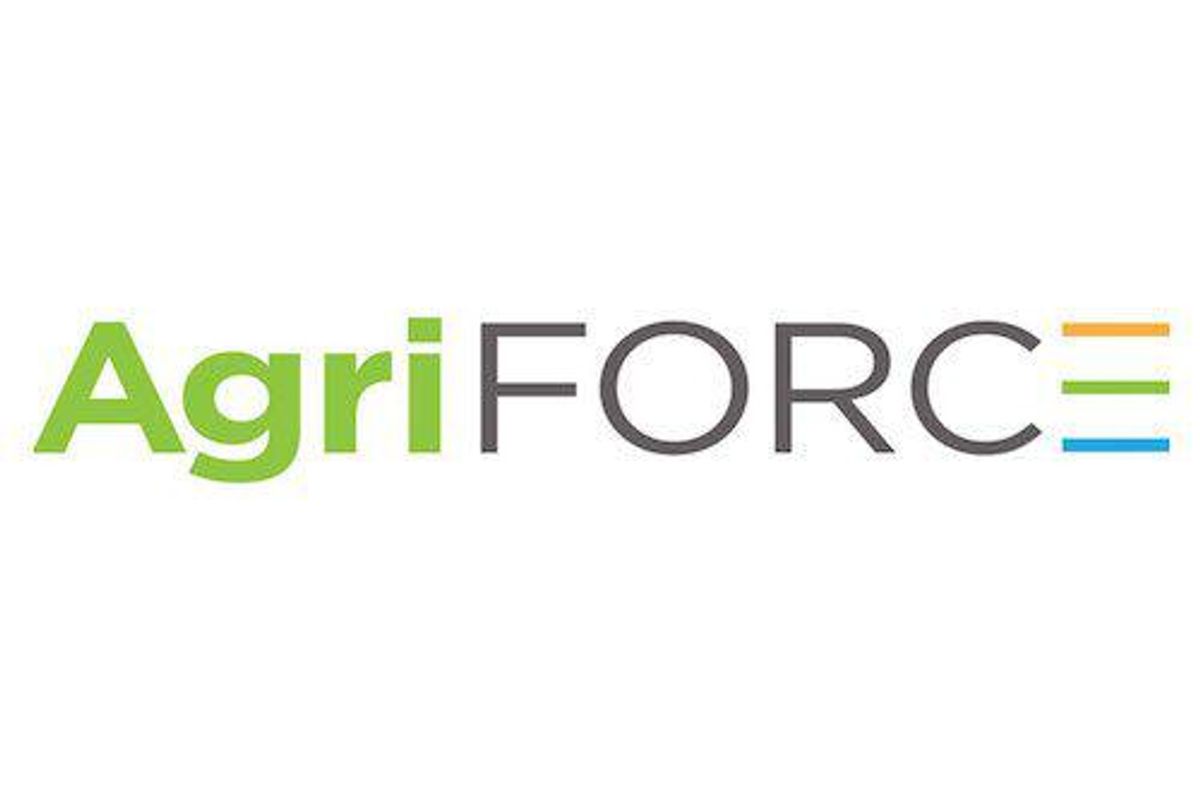AGRIFORCE Growing Systems Ltd. ("the Company") (NASDAQ: AGRI;AGRIW) an innovative AgTech company focused on developing and acquiring AGRIculture IP that advances sustainable cultivation and processing for crops across multiple verticals, today announced the signing of a Memorandum of Understanding ("MOU") with Humboldt Bliss, Ltd. ("Humboldt"), an AGRIculture and aquaculture business based in Barbados, West Indies. Pursuant to the MOU, the parties plan to deploy AGRIFORCE's foundational intellectual property including a proprietary facility design, production and operation technologies, and automated growing system (AGRIFORCE Grow House) for the cultivation and sale of high value medical and AGRIcultural products into the Caribbean and global pharmaceutical and AGRIculture markets.
Under the terms of the MOU, it is anticipated that AgriFORCE will be responsible for the construction and providing the full Standard Operating Procedures ("SOPs") of the AgriFORCE Grow House, while Humboldt will be responsible for securing the project's land and facilities operations. Upon production, Humboldt has committed to remit a licensing and equipment leasing fee to AgriFORCE equal to a slight discount to a commercial index for a minimum of 14,300 pounds of high value medical and agricultural products per year. As an example, given a current index price of approximately $1,900 per pound with a 10% discount, a 14,300 pound annual minimum could potentially yield annual gross revenue of $24,500,000. 1 The initial contract would be for a minimum 5-year term. The contract would be backed by a rolling $5 million quarterly performance bond maintained by Humboldt.
Commenting on the MOU, AgriFORCE's CEO Ingo Mueller stated, "Barbados is an exceptional opportunity to showcase our technology with the country's challenging tropical climate, as well as the limestone rich soil conditions found on the island. In turn, we believe this will add high-paying and technical jobs to the Barbadian economy and contribute significant cash flow and robust economic opportunities to AgriFORCE."
The MOU is subject to execution of definitive documentation acceptable to both parties. The intent of both parties is to identify a property within 90 days and enter into a Definitive Agreement within 120 days of the date of the MOU.
About Humboldt
HUMBOLDT is an agriculture and aquaculture business based in Barbados, West Indies with deep roots and ties into the Barbadian business landscape. Through its subsidiaries, HUMBOLDT has applied for licensure and entered into various licensing deals, leases and partnerships in Barbados to sell, distribute and cultivate high value medical and agricultural products for Caribbean markets. Humboldt has entered licensing deals with a United States based Multi-state operator; as well as Honey Vape, a multi-state e-pen manufacturer, to work in partnership in expansion throughout the Caribbean.
About AgriFORCE
AgriFORCE Growing Systems Ltd. (NASDAQ: AGRI; AGRIW) is an AgTech company focused on developing and acquiring AGRIculture IP that changes the way plant cultivation and processing is done to provide more sustainable and better quality food, pharmaceuticals, nutraceuticals and plant based products and ingredients. Our vision is to be a leader in delivering plant-based foods and products through advanced and sustainable AG Tech Solutions. The Company's foundational IP includes a proprietary facility design and automated growing system for high-value crops focused on improving the way that crops are grown. The Company calls its facility design and automated growing system the "AGRIFORCE Grow House." The Company has designed its AGRIFORCE Grow House to produce in virtually any environmental condition and to optimize crop yields to as near their full genetic potential possible, while using substantially fewer natural resources and eliminating the need for the use of pesticides and/or irradiation. The AGRIFORCE goal: Clean. Green. Better.
Additional information about the Company is available at: www.agriforcegs.com .
This press release contains forward-looking statements within the meaning of the "safe harbor" provisions of the Private Securities Litigation Reform Act of 1995. Statements other than statements of historical facts included in this press release may constitute forward-looking statements and are not guarantees of future performance, condition or results and involve a number of risks and uncertainties. Actual results may differ materially from those in the forward-looking statements as a result of a number of factors, including those described from time to time in our filings with the Securities and Exchange Commission and elsewhere. The Company undertakes no duty to update any forward-looking statement made herein. All forward-looking statements speak only as of the date of this press release.
Company Contact:
Ian Pedersen
Tel: (604) 757-0952
Email: ipedersen@agriforcegs.com
Investor Relations:
Crescendo Communications, LLC
David Waldman/Natalya Rudman
Tel: (212) 671-1021
Email: AGRI@crescendo-ir.com
Media Relations:
AHA Creative Strategies Inc.
Ruth Atherley
Tel: (604) 846-8461
Email: ruth@ahacreative.com
1 These statistics are merely set forth as an illustrative example based upon potential market conditions. There is no guarantee that these conditions will come about or, if they do, that the Company will be able to fully capitalize upon them. Any potential outcome is also conditioned upon the Company entering into a binding definitive agreement with Humboldt.

